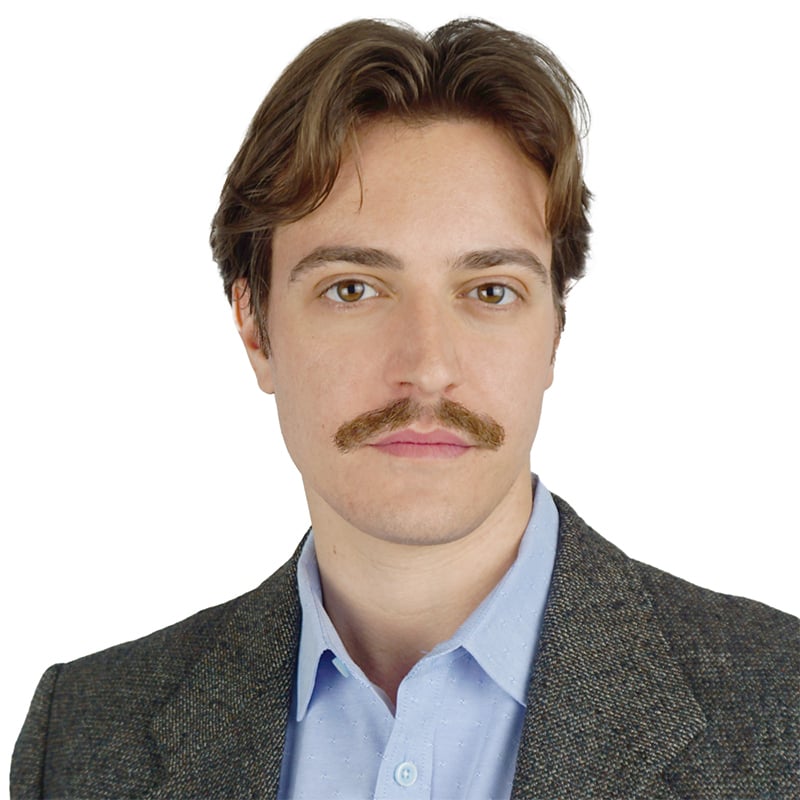You have /5 articles left.
Sign up for a free account or log in.
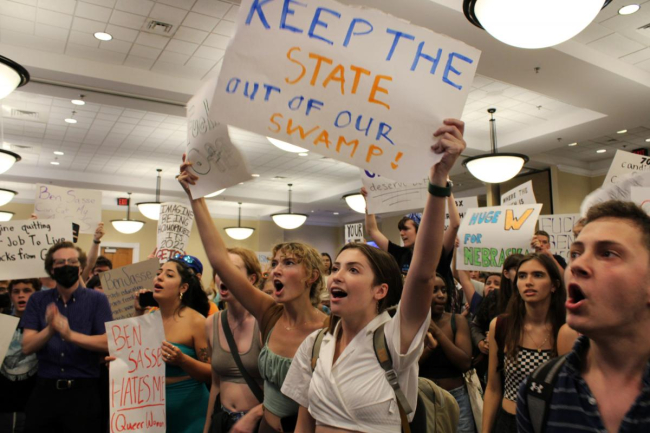
Student protesters at the University of Florida denounced the selection of Ben Sasse as the sole finalist of the presidential search.
Photo by Ashleigh Lucas/The Alligator
The University of Florida announced Friday that U.S. Senator Ben Sasse was the sole finalist in its search for a new president, a decision that elicited a wide range of reactions from faculty, students and staff. On Monday, the Republican from Nebraska traveled to Gainesville to see the campus and meet with members of the university community.
During his trip, Sasse repeatedly sought to draw a line between his career as a politician and what he sees as the “consensus-building” role of a university president.
“One of the things that’s so appealing about this moment and this opportunity for me … is the opportunity to step back from politics for a time,” Sasse, who is two years into his second six-year term, said at a forum hosted by the Faculty Senate. “I think most of this job is a very different thing than the political aspects of the job I’ve just had, and I want to assure you that I’m well aware of those differentiated roles.”
But if Monday was any indication, life as UF’s next president may not look as different from politicking as Sasse thinks. He wasn’t angling for votes, but he was engaging in a different kind of public image campaign; he spent the day meeting with various interest groups, trying to build trust, lay out his leadership vision and assuage fears among his new would-be constituents.
Sasse, who has written about his ideas for improving American higher education, said he was “smitten” with the University of Florida, where he said he sees great potential to model a positive transformation.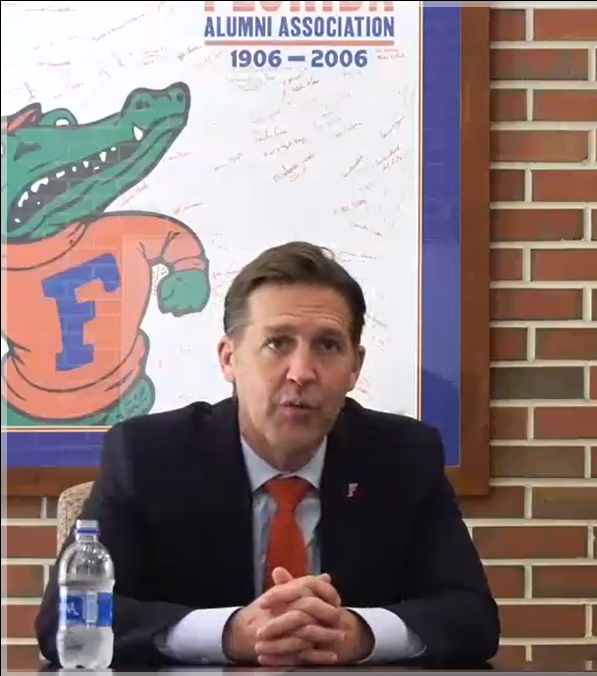
“I think that the vast majority of institutions of higher ed think that what we’re doing 20 and 30 years from now will be basically the same things we were doing 20 and 30 years ago, and I don’t really think that’s true. I think we’re going to have to innovate,” he said. “The last three to five to seven years here feel like there’s a kind of momentum and trajectory here that’s almost unrivaled in the country.”
At three back-to-back open forums—one with faculty, one with students and a third with administration and staff—Sasse, who will likely resign from his Senate seat to take the UF job if his hiring is approved, carefully addressed some of the many concerns raised over his candidacy.
Asked about his opposition to gay marriage and abortion rights during the faculty forum, Sasse said that his views concerning federal policy will have no effect on his role as president and that he is committed to making UF a “place of respect and inclusion for all Gators.”
Faculty members also asked Sasse about his decision to eliminate tenure at Midland University, where he served as president from 2009 to 2014. He defended his decision but said that the issue deserved different treatment according to the institution; at UF, he said, he would be a “zealous defender of tenure.”
“There’s obviously a big difference between a large, complex research institution and a small teaching-centric institution,” Sasse said. “Tenure is an important tool inside a large research university.”
When asked about his position on laws proposed by Florida’s state Legislature concerning academic freedom, such as the so-called Stop Woke Act, Sasse was decidedly more cagey. He said that while he is “a defender of academic freedom, full stop,” he has “a lot more to learn” about what the legislation in question would mean for institutions in Florida.
He also said he wants to ensure that the university is a place for “robust debate” and warned of the dangers of “indoctrination” in the classroom.
“Academic freedom is obviously essential to our research mission, and academic freedom is essential to what happens in a dynamic classroom,” he said. “My understanding is some people are worried about indoctrination in the classroom. Good teaching isn’t indoctrination … Good teaching is initiating people into debates.”
Students Against Sasse
During the second forum, held for UF students, Sasse addressed many of the same concerns—including how he would ensure the safety of LGBTQ+ students on campus and his stance on abortion rights. He also addressed a student’s question about hybrid learning and said he was interested in exploring the educational opportunities of the metaverse.
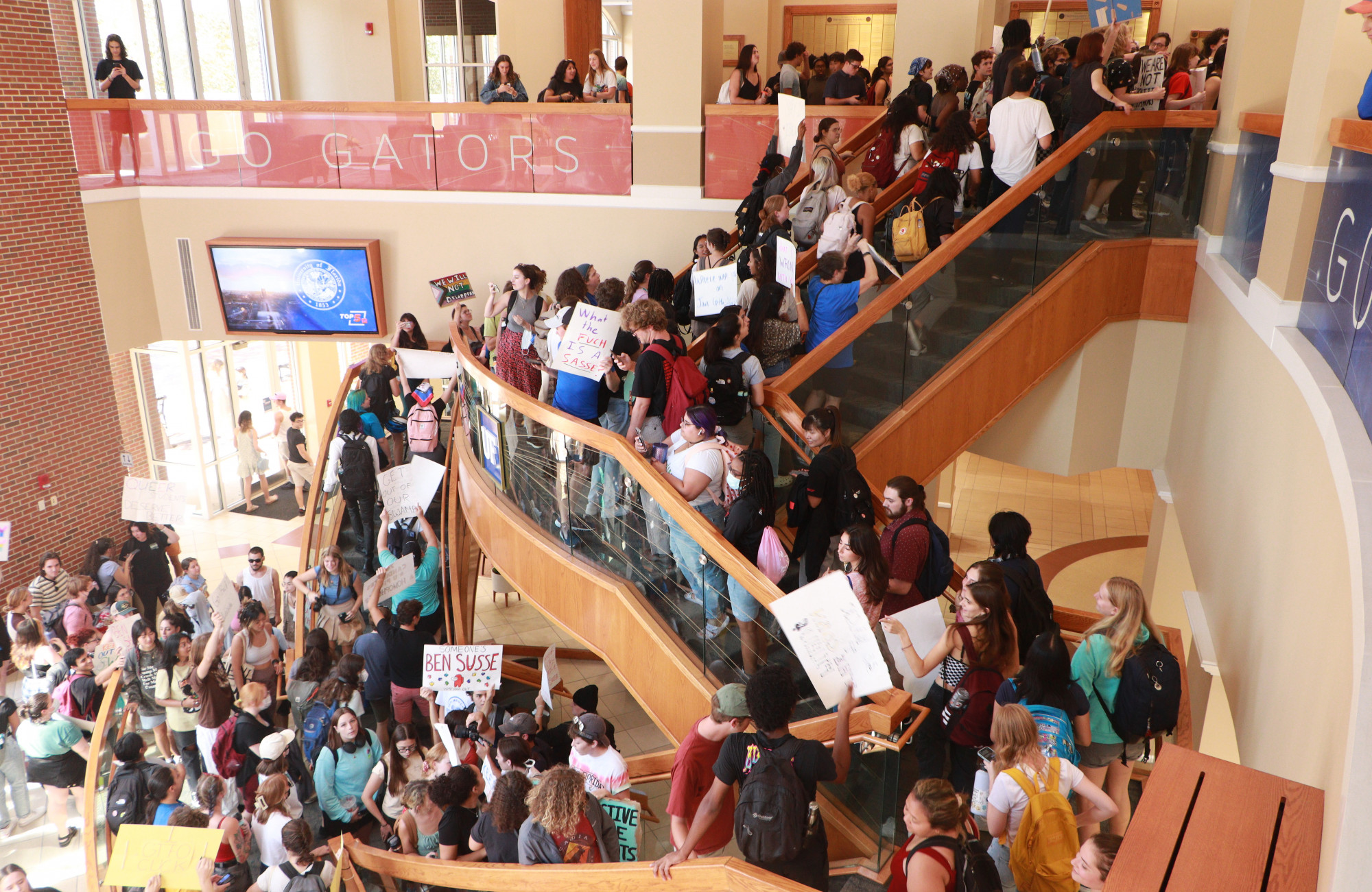 Meanwhile, hundreds of protesters gathered outside Emerson Hall, drowning Sasse out multiple times with their chants.
Meanwhile, hundreds of protesters gathered outside Emerson Hall, drowning Sasse out multiple times with their chants.
“Obviously, I wish they didn’t have the position they have, but I strongly support their rights to protest,” Sasse said during the forum, backed by the rhythm of the chanting. “I don’t exactly welcome them, but I intellectually and constitutionally welcome the protesters.”
Halfway through the event, the protesters entered the building. The forum ended a few minutes prematurely, and Sasse was ushered out.
The protesters proceeded to occupy the President’s Ballroom, where Sasse had been speaking moments before, and filled all 150 seats. The crowd—made up of mostly students as well as some staff and faculty members—held signs saying “get your Sasse out of our swamp” and chanted, “Ben Sasse has got to go.”
The protest forced Sasse’s next forum, with staff and employees, to go online, livestreamed from an unnamed remote location.
Allan Frasheri, co-president of the UF chapter of Young Democratic Socialists of America and one of the protest organizers, told Inside Higher Ed before the protest that Sasse’s presumptive appointment evoked “anger and rage” in him and many of his peers.
“With [Florida governor Ron] DeSantis, we knew that the president was going to be a political choice. But we didn’t think they’d go as far as to pick an actual Republican politician,” he said. “It’s just another part of the increasing shadow of political interference from Tallahassee … We want to let him know he’s not welcome here.”
Demonstrating their anger during Sasse’s visit, Frasheri said, was a no-brainer for student organizers.
“I’ve never seen a protest organized so quickly,” he said. “Even students who had never been activists or talked about politics much before were reaching out, asking how they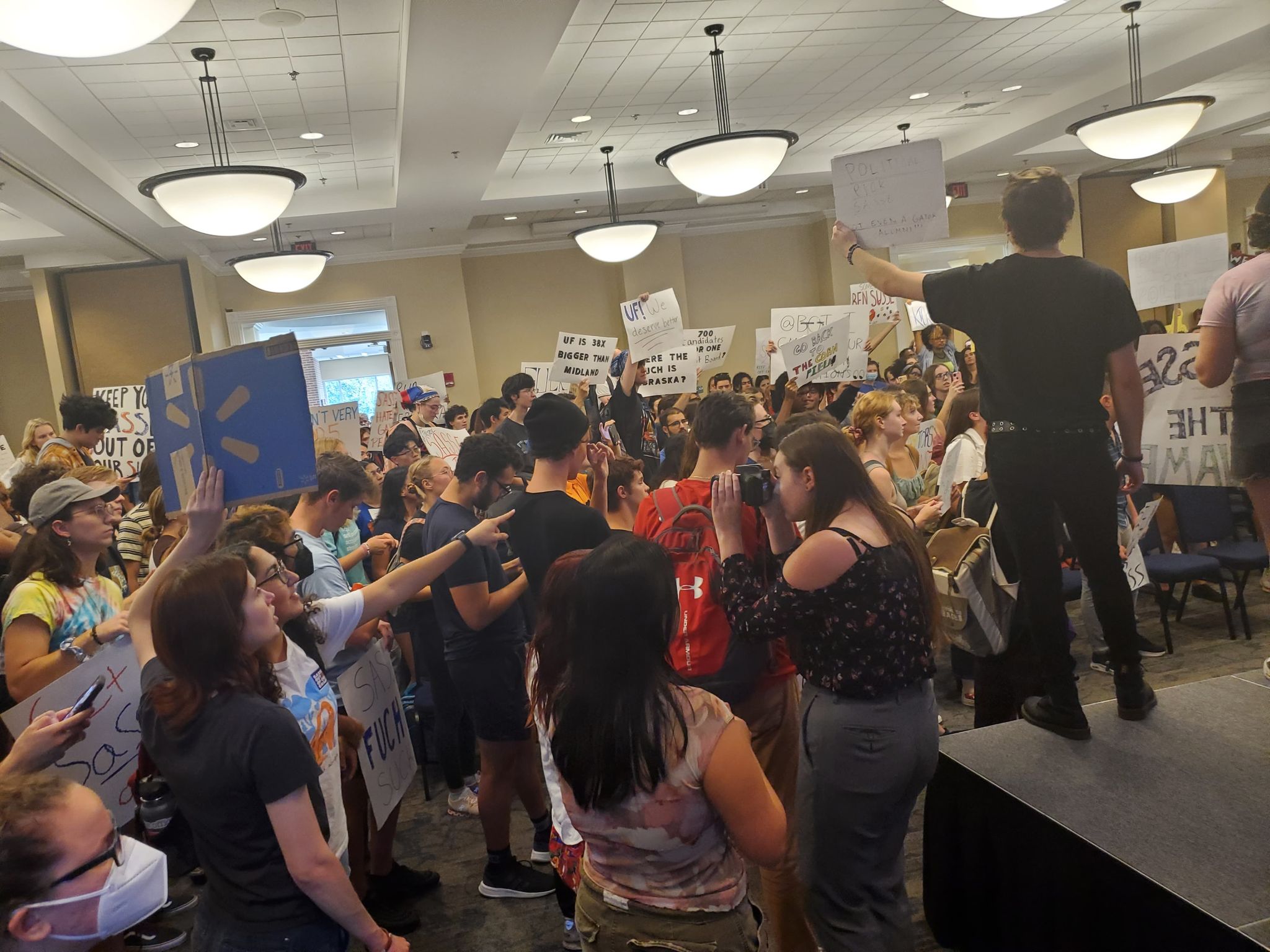 could help, posting about it on social media … It’s been kind of a massive politicizing event.”
could help, posting about it on social media … It’s been kind of a massive politicizing event.”
Sasse’s critics were also upset that the presidential search had been conducted in secret unlike the search for current president Ken Fuchs—thanks to a new Florida law exempting presidential searches from the state’s open records law.
Rachel Hartnett, co-president of the Graduate Assistant Union at UF, said the demonstration was just a taste of what Sasse could expect from the UF community if he took the job.
“Any time he comes to campus, he will be met with representatives of the Gainesville community who will let him know exactly what we think about him,” she said. “We won’t let a political appointee from Nebraska come in and change things.”
A UF spokesperson told Inside Higher Ed via email that the university has “no further comment” on the protests or concerns about Sasse’s political history.
‘Inexperienced’ or ‘Transformational’?
Many UF constituents are also concerned about Sasse’s relative lack of experience leading an institution as complex as Florida’s massive flagship university.
Current UF president Kent Fuchs was the provost of Cornell University for five years before coming to UF. Though Sasse served as president of Midland before he was elected to the Senate in 2014, that was a small Lutheran institution in Nebraska with a student body of roughly 1,600; UF, by contrast, has over 55,000 students.
“He just doesn’t have the experience or knowledge to run a large research one–level university,” Hartnett said. “The entire population of his old college could fit in one of our lecture halls.”
But Sasse’s record at Midland is also something of a success story. When he took over as president at age 37, the college was running a $3.5 million deficit and enrollment was at a historic low. Two years into Sasse’s tenure, the college saw its largest freshman enrollment in its 130-year history.
Faculty Senate chair Amanda Phalin, who moderated the faculty forum with Sasse Monday, tweeted Friday that she was “thrilled” Sasse had been chosen as the finalist.
“This is a historic moment that calls for a unique and transformational leader, and that is who I think our Search Committee has found,” she wrote.
The university’s Board of Trustees is set to vote on his appointment in early November.


